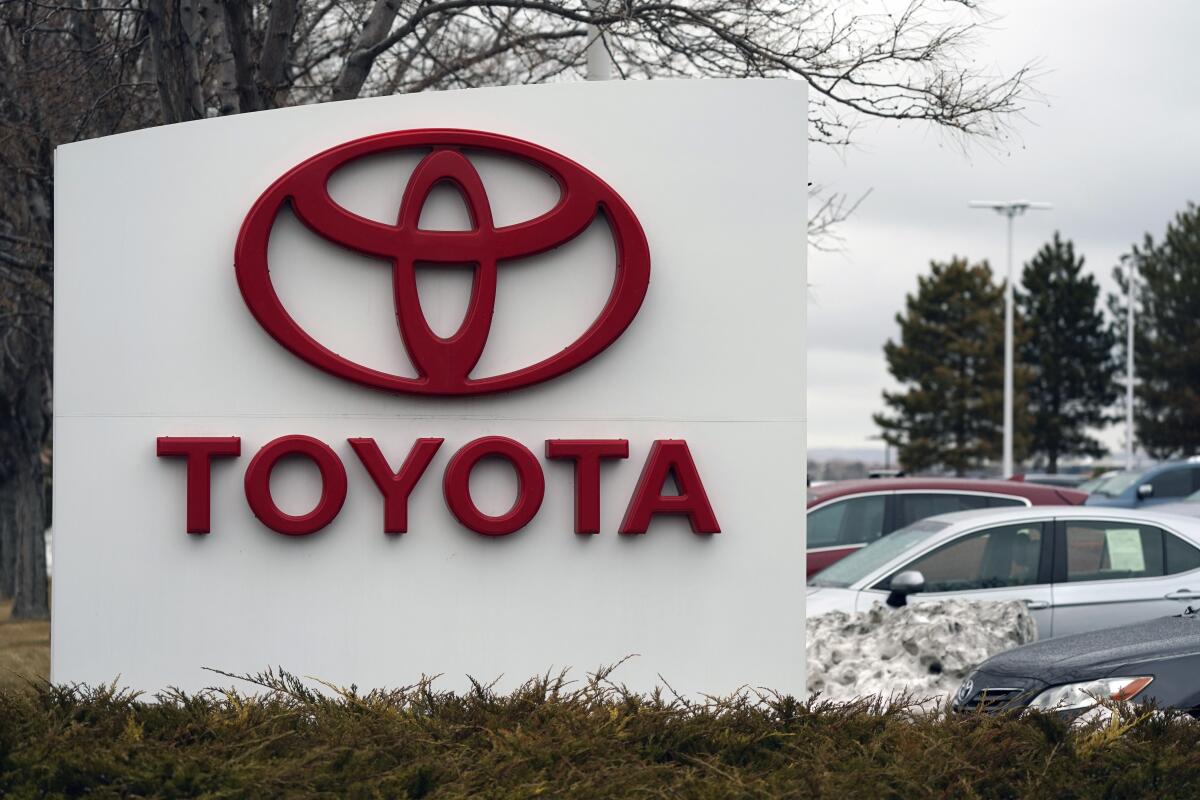Toyota executive lashes out at U.S. regulations promoting EV sales

- Share via
Toyota Motor Corp.’s North American chief operating officer criticized U.S. policies promoting speedy adoption of electric vehicles, calling them “de facto mandates” out of sync with consumer demand.
Noting that government support for EVs has been a hotly debated issue in the U.S. presidential election, Toyota North America COO Jack Hollis said sales of all-electric vehicle should grow organically, without rules penalizing gas-powered car sales.
“The whole EV ecosystem is ahead of the consumer,” Hollis told reporters Friday, pointing to tailpipe emission rules from the Environmental Protection Agency and California. “It’s not in alignment with consumers. It’s just not.”
In March, the EPA set stringent emission limits that compel automakers to accelerate sales of battery-electric and plug-in hybrid models over the next few years to cap carbon dioxide at 85 grams per mile by 2032. That Joe Biden-Kamala Harris administration policy was a frequent target of President-elect Donald Trump in the run-up to the Nov. 5 election.
California, the nation’s largest auto market, has even tougher regulations designed to phase out all new gas-burning cars by 2035, and many states adopt these rules. Hollis, who also serves as Toyota’s U.S. sales chief, said they contribute to an affordability crisis because EVs tend to be pricier than gas-powered vehicles.
But he declined to speculate on whether Toyota would join any potential effort by the incoming Trump administration to block California’s zero-emission vehicle rules. “I hope it doesn’t come to that. That’s not an area I’m willing to go into” at this point, he said.
Toyota was among the last automakers to withdraw support for an effort under the first Trump administration to prevent California from continuing to set its own emissions standards.
Toyota plans to roll out a pair of American-made EVs in 2026 in addition to two all-electric models it currently sells in the U.S. That’s part of its incrementalist approach to an industrywide shift to EVs, sales of which have slowed globally.
Hollis said the Japanese company is mulling over a possible future adjustment in the ratio of fully electric to hybrid-electric batteries produced at a new plant in North Carolina. The facility, which is expected to open next year, was built with 10 production lines for batteries for fully electric or plug-in models, and four lines dedicated to hybrid batteries.
Dawson writes for Bloomberg.
More to Read
Inside the business of entertainment
The Wide Shot brings you news, analysis and insights on everything from streaming wars to production — and what it all means for the future.
You may occasionally receive promotional content from the Los Angeles Times.










